Wanting to limit visitors after you’vejust had a babyis a totally understandable desire, but the stress of even thinking about how to tell loved ones to stay away without offending them beyond repair is enough to tip you over the edge.
Logic tells us that the birth of a baby is a sacred, special, and also extremely difficult time of adjustment and healing for motherand baby, but unfortunately, society implies: FREE BABY SQUISHES FOR ALL! Everyone wants to come and see (and touch – gah!) you and the new baby just after you've just given birth, for centuries mistakenly thinking this to be the correct etiquette, but this should definitely not be the case.
A new mother, whose stitches are killing her, boobs are leaking everywhere, is sitting in a puddle of her own blood in an adult nappy, and who is probably – thanks to the crazy hormones – a second away from crying at any given moment, should not have to also be thinking about whether she’ll offend anyone if she says, “I’m sorry, I’m not feeling my best right now, do you perhaps mind if we arrange this little visit another time?”

Trying to get to grips withbreastfeeding, for one thing, is a reason in itself to make sure you have enough privacy in those first few days, as well as the overwhelming desire and necessity to sleep whenever you get a baby-free moment. Entertaining friends and relatives during this time should not be high on your list of priorities and you could do without worrying about what germs people are bringing into your fragile little baby’s vicinity.
Most first-time parents who were open to the idea of having visitors at the birth of their first child, decided against this for their second child, and for good reason. “I was mum-shamedwithin the first few hours of being a mum,” says Stella. “Even though they are well-meaning, people love giving you unwarranted advice, tips, comments, and what they think is constructive criticism, which is a bit too much for a new mum to handle. Looking back, I would have preferred to have kept them away at least for that initial, overwhelming, crying-all-the-time-for-no-reason period.”
The main thing to grasp is that this is your time to spend as you wish and you have nothing to feel bad about if all you want is a little privacy. It’s a basic human right, especially at times such as these. “I didn’t know how to refuse visitors without anyone being mad at me,” says Lisa, who is expecting her second child. “It ended up being like some kind of free-for-all freak show, open to the public. People were coming and going, there was so much commotion – not at all what I had hoped for or imagined. It gave me unnecessary anxiety and I will not be making the same mistake this time around.”
Visitors can be a lot to handle, and it might be better to ease yourself into them. If you are an expectant or new parent worried about visitors, whether you’re an introvert, a germaphobe, or even if you’re simply just not a people person, here are 15 ways to deal with visitors when you’ve just had a baby.
Limit birth visitors
 1 of 15
1 of 151. Good old social media
Social media is a really great way to get a message out there. When you announce the arrival of your little bundle of joy, you could add on a couple of sentences that should really seal the deal on your visitor policy. For example, you could say, “Mother and baby are doing fine, mummy is still recovering and we’ll be sure let you know when we are open to visitors.”
 2 of 15
2 of 152. Practice your lines
When people call to wish you well and ask where you are so they can come over, having a prepared line in mind will make your stance clear. Something like, “Things are a bit hectic right now so we’re not accepting any visitors, but thanks so much for offering, it means the world to us. We’ll let you know when it’s a good time to come over.”
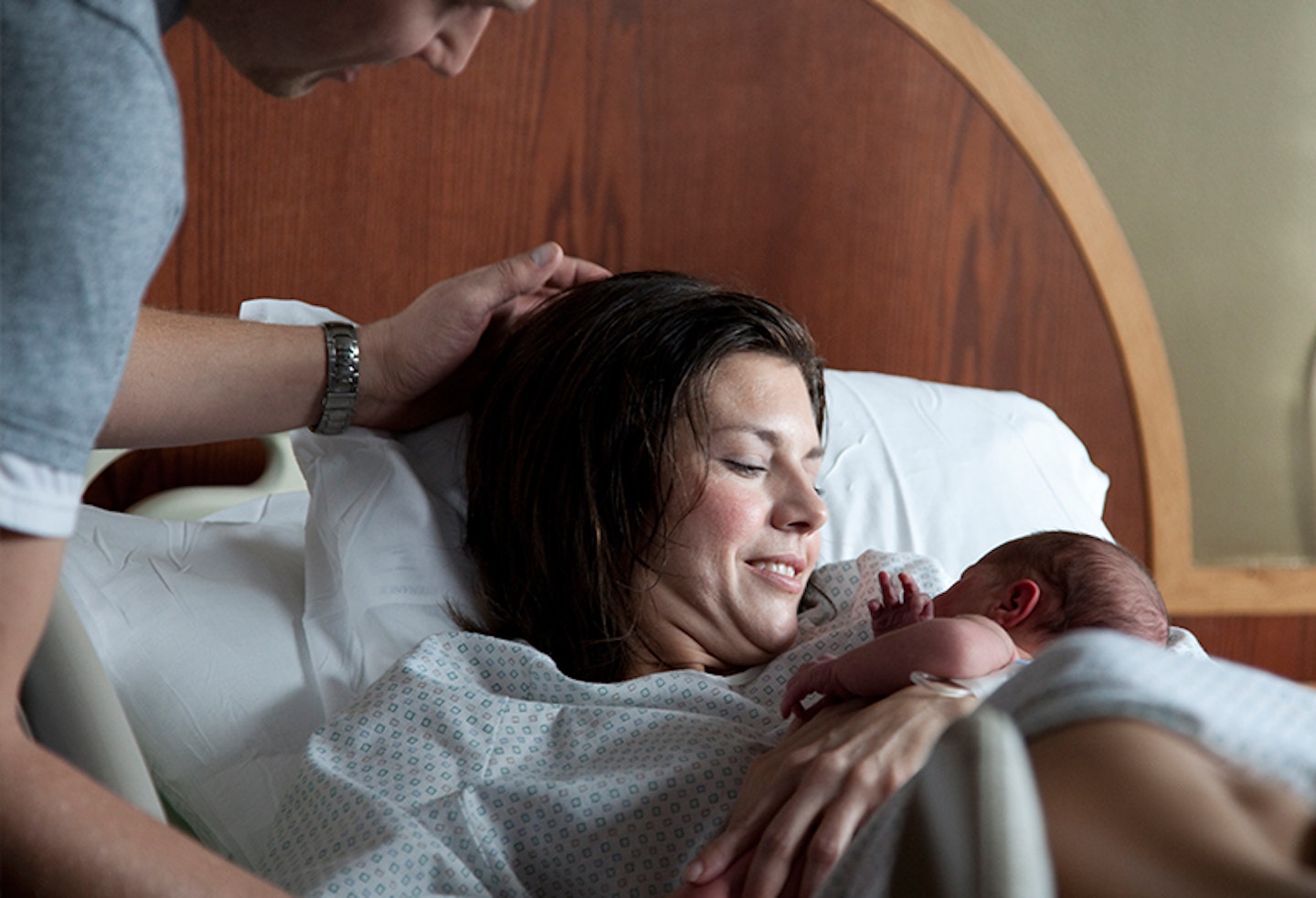 3 of 15
3 of 153. Don’t do it alone
Make sure you and your partner are on the same page about what you will be telling people. There’s no need to good cop/bad cop the situation (unless that’s the method you’ve decided to use, which is also fine as long as you get the outcome you want). You can share the responsibility of telling the families; perhaps each of you could break the “no visitor” policy to your own family, or vice versa if that’s what you think will work best.
 4 of 15
4 of 154. Be organised
If you prefer to be super organised, you could announce your policy on visitors before the baby has even arrived. A message – social media post, email, text, or even a practiced phone call – such as, “We will be expecting our little one very soon and have decided to spend the baby’s first few days as a family, but we know you’re all keen on meeting the new member, so we’ll be sure to let you know as soon as we’re back home.”
This way, you’ll have one less thing to worry about once the baby arrives as you’ll have already laid all the groundwork beforehand.
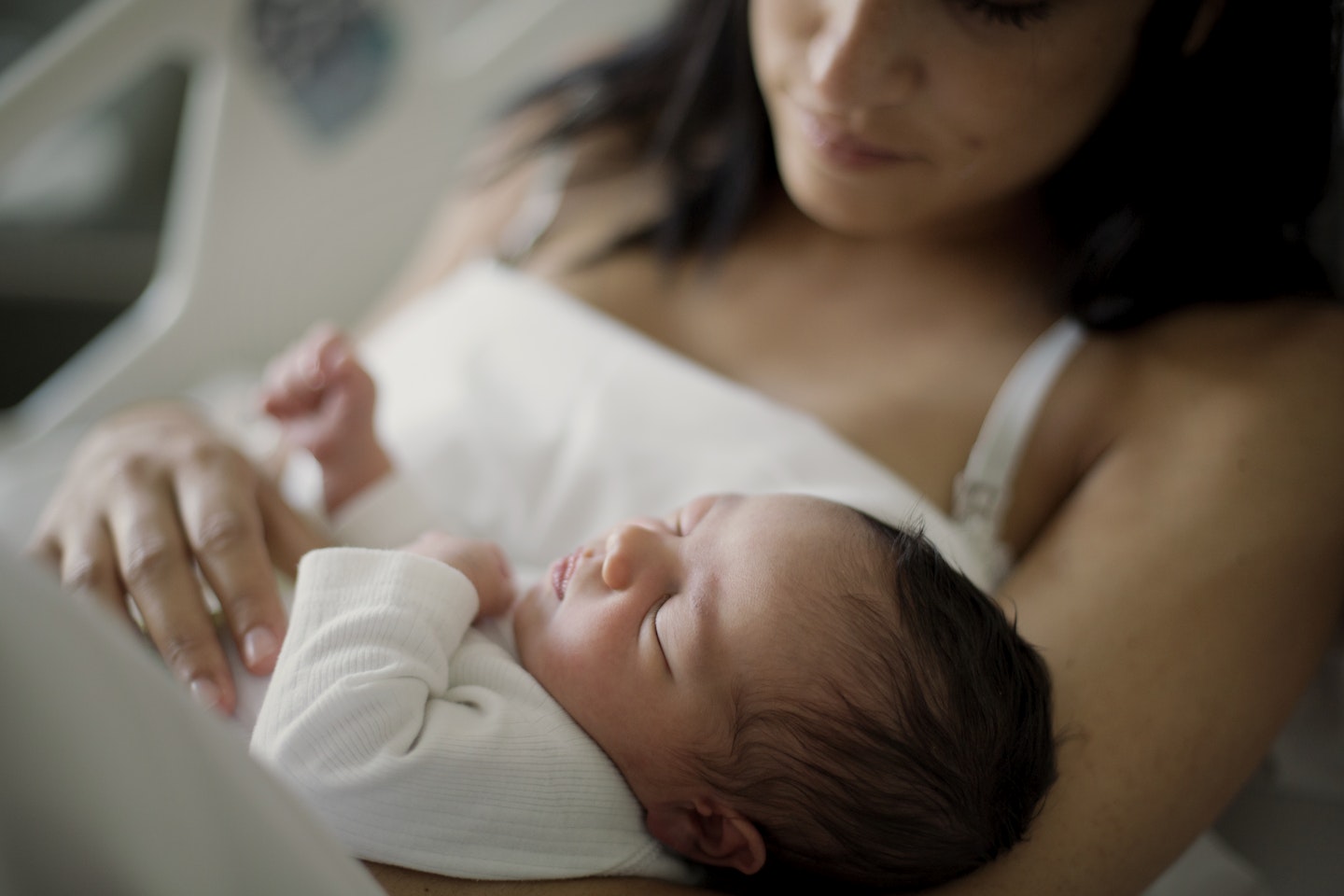 5 of 15
5 of 155. Don’t announce the birth immediately
There really is no rule that states that you must declare the baby’s arrival to all the land immediately after birth… or even a week after, at that. Feel perfectly free to have the baby, spend those first few precious days in the hospital getting to know each other in peace, and then start announcing it to your friends and family once you are safely and happily back home, and feel ready to see people.
 6 of 15
6 of 156. Ghost them
There really is no rule that states that you must declare the baby’s arrival to all the land immediately after birth… or even a week after, at that. Feel perfectly free to have the baby, spend those first few precious days in the hospital getting to know each other in peace, and then start announcing it to your friends and family once you are safely and happily back home, and feel ready to see people.
 7 of 15
7 of 157. Out of Office message
If you don’t like the idea of ignoring people, but also don’t really want to have to deal with anyone, then an out-of-office message is a perfect option. You can set an out-of-office email or even an out-of-office text message to reply to texts on your phone. Something simple like, “We’ve just had a baby and are thrilled but immensely tired. Thanks for your message, please give us some time to get back to you personally and let you know when we’re open for visitors.”
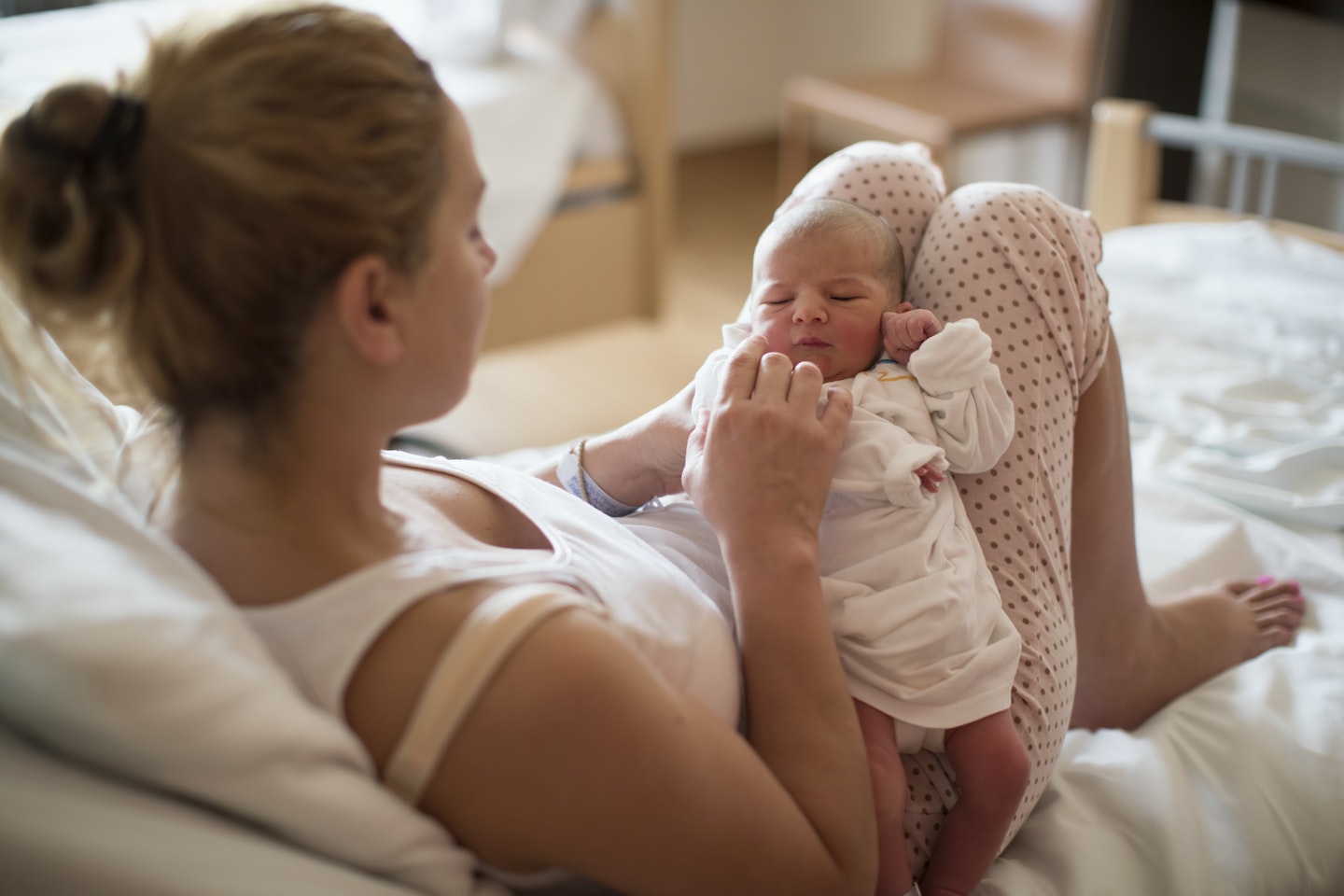 8 of 15
8 of 158. Have a designated spokesperson
If you or your partner don’t want to have to be the ones turning away visitors and well-wishers, you’ll be surprised at how many people would jump at the chance to do this for you. Whether a mother, mother-in-law, a sibling or someone you trust very well, your designated spokesperson can be blunt and to the point in announcing that the family needs some time and are not accepting visitors at the moment, and they will let people know as soon as this changes.
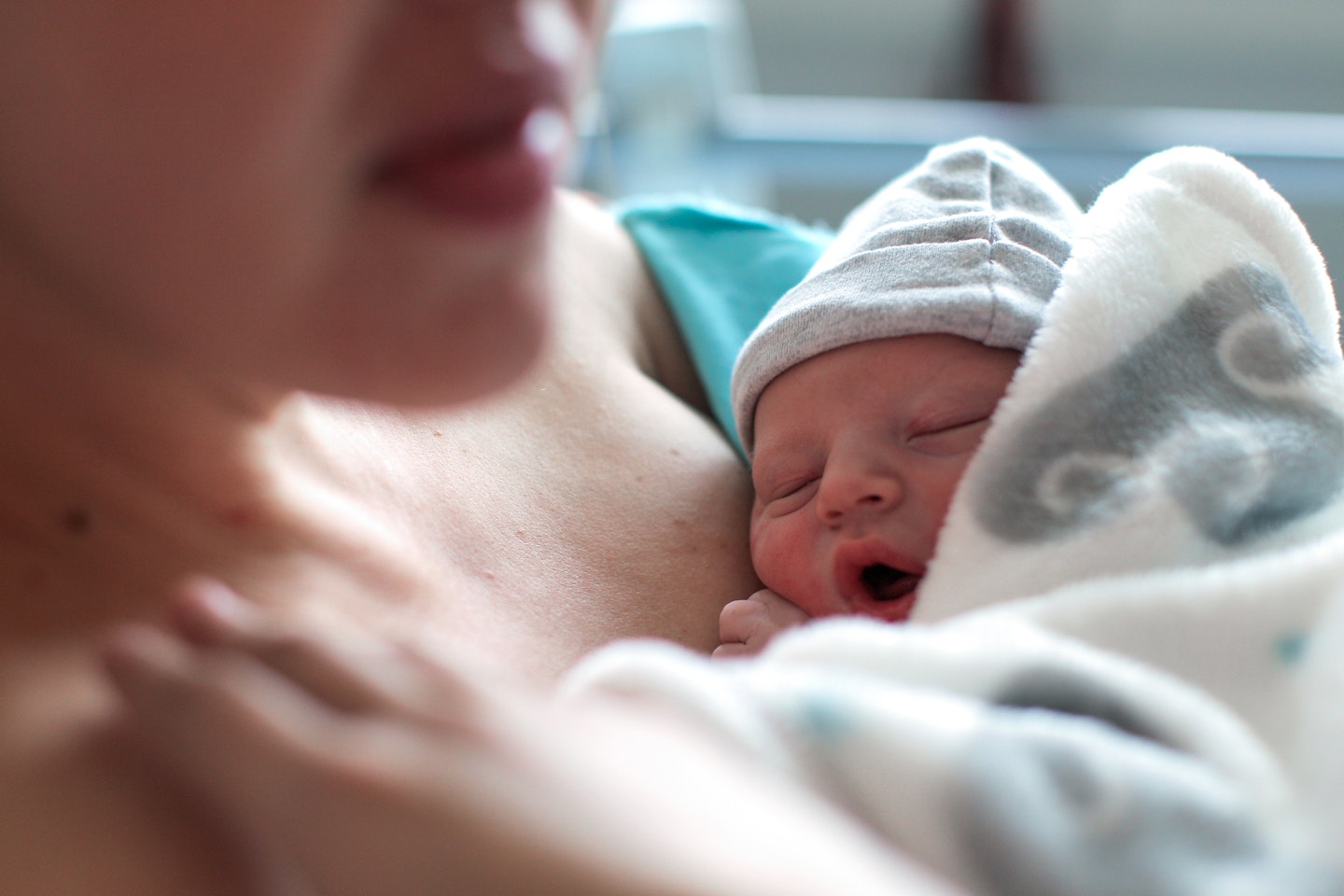 9 of 15
9 of 159. Divert
A lot of people who love you want to come and help you with the baby. If someone close to you offers to come and see you and provide assistance, but you can’t handle them just yet, ask them to do something else which will make them feel equally as important, like run some errands for you. “I know you want to come over and help but it would help me so much more if you could [enter task here] for me. I would appreciate it so much. All we’re doing is eating, pooping, and sleeping, so we’re not the best company at the moment anyway. You’ll be one of the first people we invite over, promise.” That should do the trick.
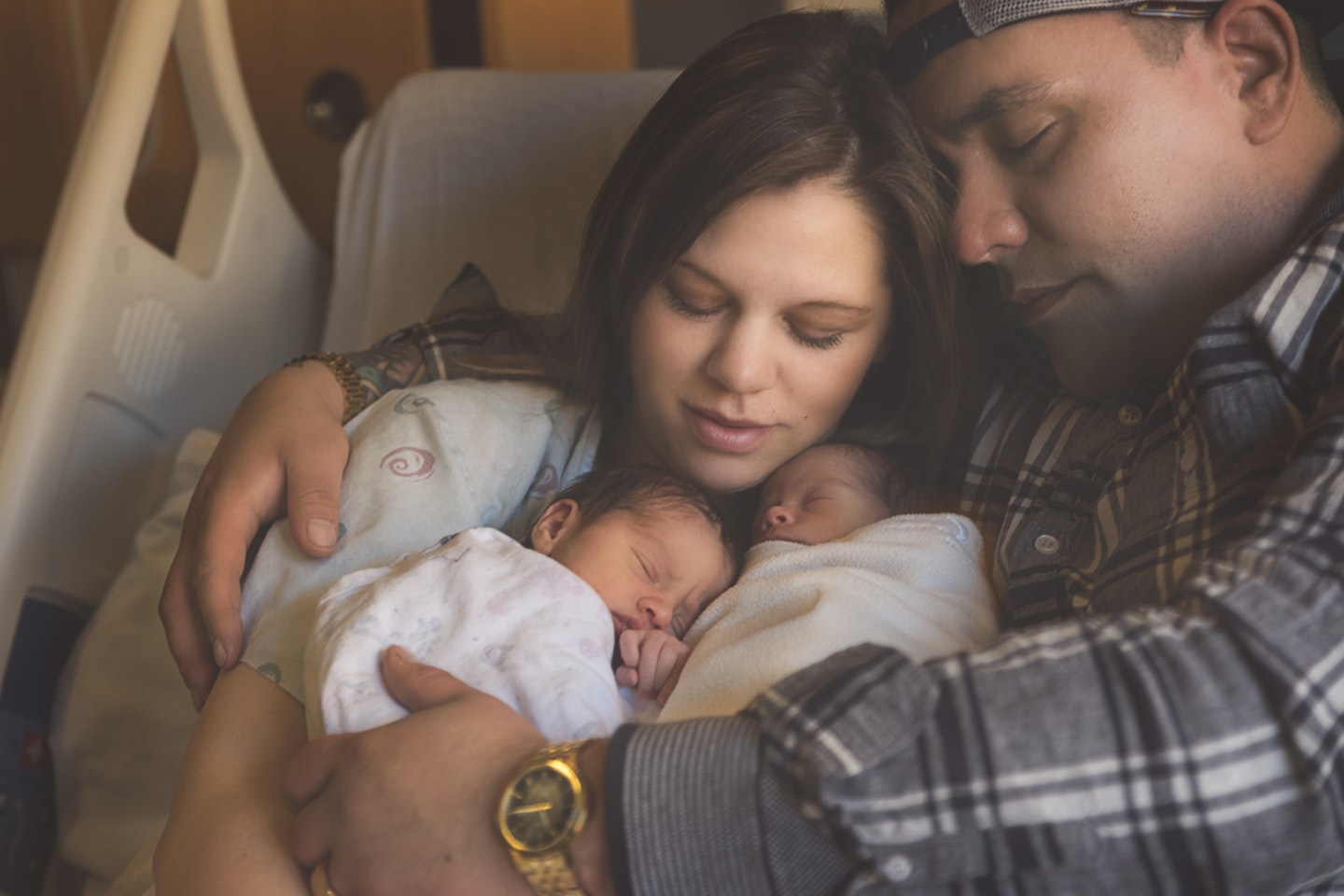 10 of 15
10 of 1510. Lie, Lie, Lie
If you still can’t bring yourself to just say, “No, you can’t come over,” then you’re allowed to lie. It’s a white lie and it’s for the good of your family, and your sanity. You could say that the ward only allows two visitors per day and that your quota has unfortunately already been filled. You could say that you have a cold and don’t want anyone catching it, or that you’re being let out early but don’t know the exact time yet, and will let people know as soon as you do. Use your imagination. The world is your oyster.
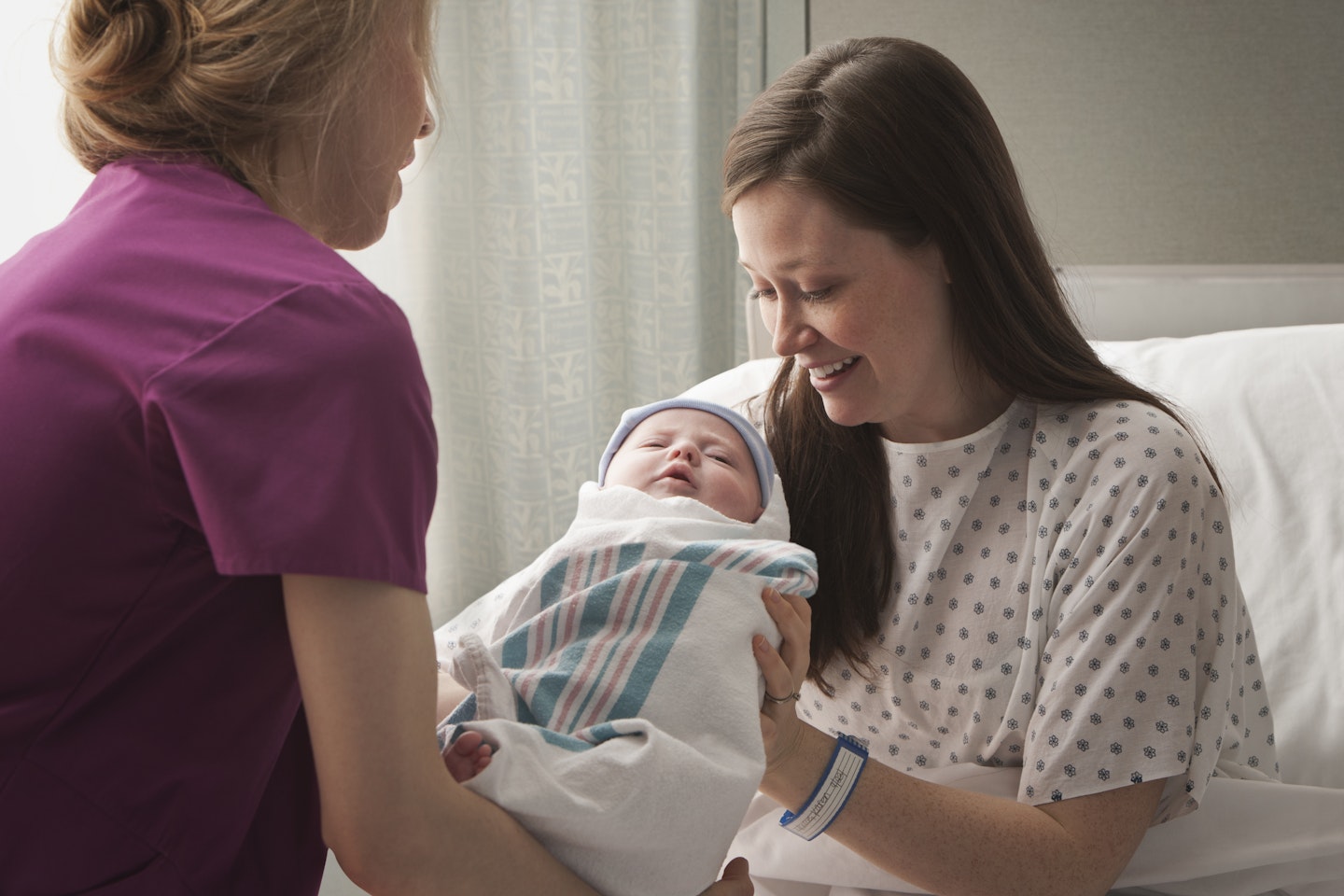 11 of 15
11 of 1511. Let the nurses take the fall
Nurses and midwives are more than willing to take the fall for you if you ask them nicely. With your go-ahead, these queens can turn away unannounced visitors, tell people who have overstayed their welcome that it’s time to leave, and are happy to take the blame for “not allowing” you to have any visitors.
 12 of 15
12 of 1512. Make a sign
If you do decide to accept visitors, but are still worried about people getting too touchy-feely, then a great way to set some boundaries is by having a bold sign above your hospital bed. You could get as creative as you want with it, but some basics to have on there would be: “1. Please wash and sanitize your hands with the soap and sanitizer provided. 2. Don’t get too close to mother or baby. 3. Please do not touch the baby. 4. Definitely NO KISSING mother or baby. Thank you for understanding.”
This should get the point across. If anyone attempts to break the rules, you, your partner, your designated spokesperson, or the nurses can verbally remind them of the rules.
 13 of 15
13 of 1513. Strap the baby to you
Some people don’t abide by rules and just don’t get hints, so if you are still worried about people getting too close, a great tip is to have your baby strapped to your chest when visitors come over. Tell your partner to sit in between you and the visitors, and have the visitor’s chair as far away as possible.
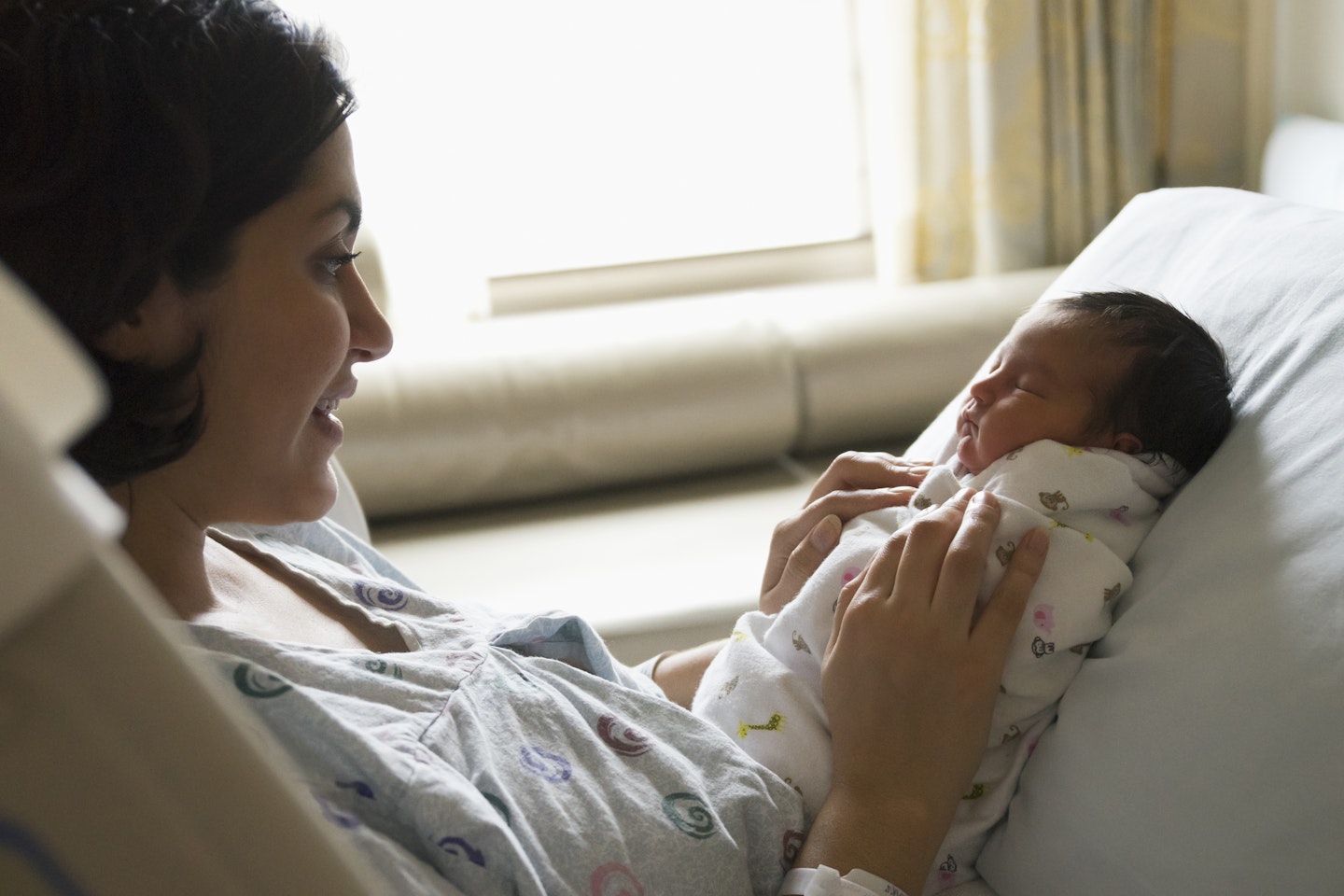 14 of 15
14 of 1514. Honesty is the best policy
Whether it’s literally telling it like it is (“We’re not accepting visitors at the moment”) or telling someone to get out of your baby’s face (“The baby’s immune system is so sensitive at the moment so please don’t get too close to him”), you have to do what is best for you and your baby and at the end of the day, if someone does get offended, it’s their problem, not yours.
 15 of 15
15 of 1515. Don’t feel bad
Unfortunately, the average woman does not look like Kate Middleton two hours after she gave birth to Prince Louis. The average woman who has just given birth looks and feels like dog poo, and is in no state to see people. The average woman can’t get up from bed or go to the bathroom without assistance, and is in a constant state of panic about the wellbeing of her new baby. She is doing the best she can and has absolutely nothing to feel bad about.
Have these tips helped you? Let us know on Facebook or Twitter!
Make sure you're following Mother & Baby on Instagramfor relatable memes, inspiring stories and parenting hacks!
Join the club! Introducing our brand, spankin’ new Facebook group called #mumtribe. Simply search ‘#mumtribe’ into the search bar and meet like-minded mums, win gorgeous goodies and have some fun!
For parenting tips, tricks and advice you can trust, click here to download a free digital issue of Mother and Baby magazine.
